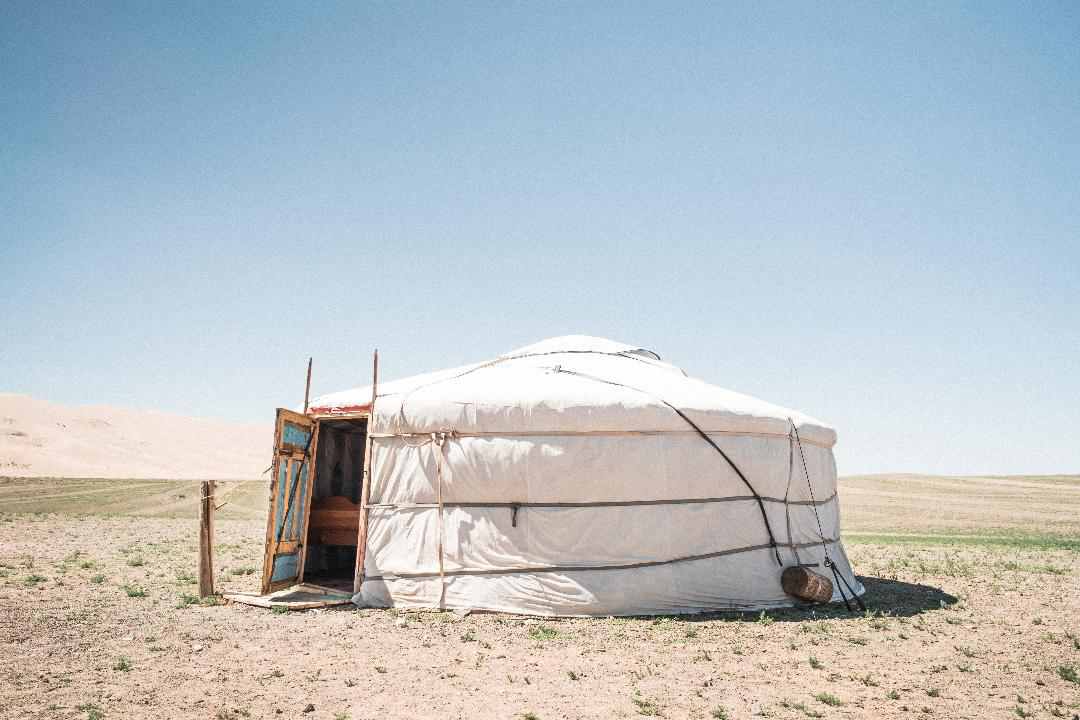
Opinion
10:45, 16-Apr-2019
My story: 5 reasons why one should support BRI
Anudari Enkhtur

Editor's note: The second Belt and Road Forum for International Cooperation will be held in Beijing at the end of this month. Over the past six years, we have heard many voices – mostly political and economic – about the BRI. We also wanted to hear ordinary people sharing their own experiences. Over 100 people took part in our "CGTN Belt and Road Essay Contest," and we selected the 18 best stories. Here is an essay of one of the third-prize winners. The article reflects the author's opinion, and not necessarily the views of CGTN.
Mongolia, where I am from, is part of the corridor of the Belt and Road Initiative (BRI) that goes to Europe through China, Mongolia and Russia.
Since the beginning of the BRI in 2013, there have been both negative and positive speculations and opinions from the international community toward the idea. Many wondered why now? Why China is investing in the infrastructure of different countries? Is this a debt trap?
As a citizen of Mongolia, I also had my doubts. The first thought that came to my mind after hearing about the BRI was that it may be dangerous for my country, even though I did not have any legitimate explanation for why I thought that way.
After spending a month-and-half in the capital of China, Beijing, and learning more about Chinese culture, its people and especially the initiative, my opinion about the BRI has changed and here I present five reasons why one should support the BRI. I feel that as a journalist, who studied development economics, it's hard to not support the BRI.
An upgrade with Chinese characteristics
Personally, I love upgrades in everything, as it makes improvements without destroying the old.
Taking its base from the ancient Silk Road, the BRI is an upgrade to the previous road that connected the East to the West. By upgrading the previous version, it gives more opportunities and access to Southeast Asian and other central Asian countries to be more connected.
It seems that it's an upgrade to the world trade system with Chinese characteristics. It brings Chinese people's humbleness and balance to everything, as it respects diversity and cultural differences.

A traditional Mongolian house or "ger" with an open door. /courtesy of Anudari Enkhtur
A traditional Mongolian house or "ger" with an open door. /courtesy of Anudari Enkhtur
Environment friendly
The BRI, just like China, respects environment and nature conservation along with economic development.
During my stay in China, I witnessed several rice plantations supported by the BRI and heard about environmental protection programs funded by the initiative. Supporting and encouraging other nations to combine economic development with environmental protection, the BRI has my support and the support of many others.
Not just about roads
The BRI comprises of five key links: policy coordination, facilities connectivity, unimpeded trade, financial integration, and people-to-people bond.
Impressed by the infrastructure development of China, I have full trust in its capacity to help and support other less developing countries in the development of reliable and structured infrastructure, which is first step toward high-quality economic development.
The initiative provides consultancy in policy coordination depending on different needs of every country, this is something which has been lacking in Western support for more than a century.

Railway to the ocean. /courtesy of Anudari Enkhtur
Railway to the ocean. /courtesy of Anudari Enkhtur
Connectivity, globalization and more
In this world, where nations are upholding protectionism for no reason, China is bringing some fresh air to the idea of globalization and calling for unity, community, and common development.
The BRI reflects the success of Chinese economic model, which has made China the second-most powerful economy in the world. I like the idea of community-driven development and bringing more togetherness in today's lonely world.
As far as I have seen and communicated with Chinese people, all of them believe in harmonious life and interconnections of people from different backgrounds. When this important value meets with other nations, it will spread harmony and balance to the rest of the world.
An ocean for landlocked countries
Coming from the second-largest landlocked country, Mongolia, I sometimes wish for warm ocean breeze. I believe, there are many more landlocked countries that desire maritime port access. It means access to different countries, markets, and more opportunities. The BRI will unlock these boundaries for me, my neighbors and for everyone.
I agree with the saying that no nation can develop fully on its own, no nation can be environmentally independent. Regardless of our desire, we are interconnected.
Different from the Western countries, China is bringing harmonious common development to the rest of the world through the BRI.
(The author is a journalist from Mongolia. If you want to contribute and have specific expertise, please contact us at opinions@cgtn.com.)

SITEMAP
Copyright © 2018 CGTN. Beijing ICP prepared NO.16065310-3
Copyright © 2018 CGTN. Beijing ICP prepared NO.16065310-3